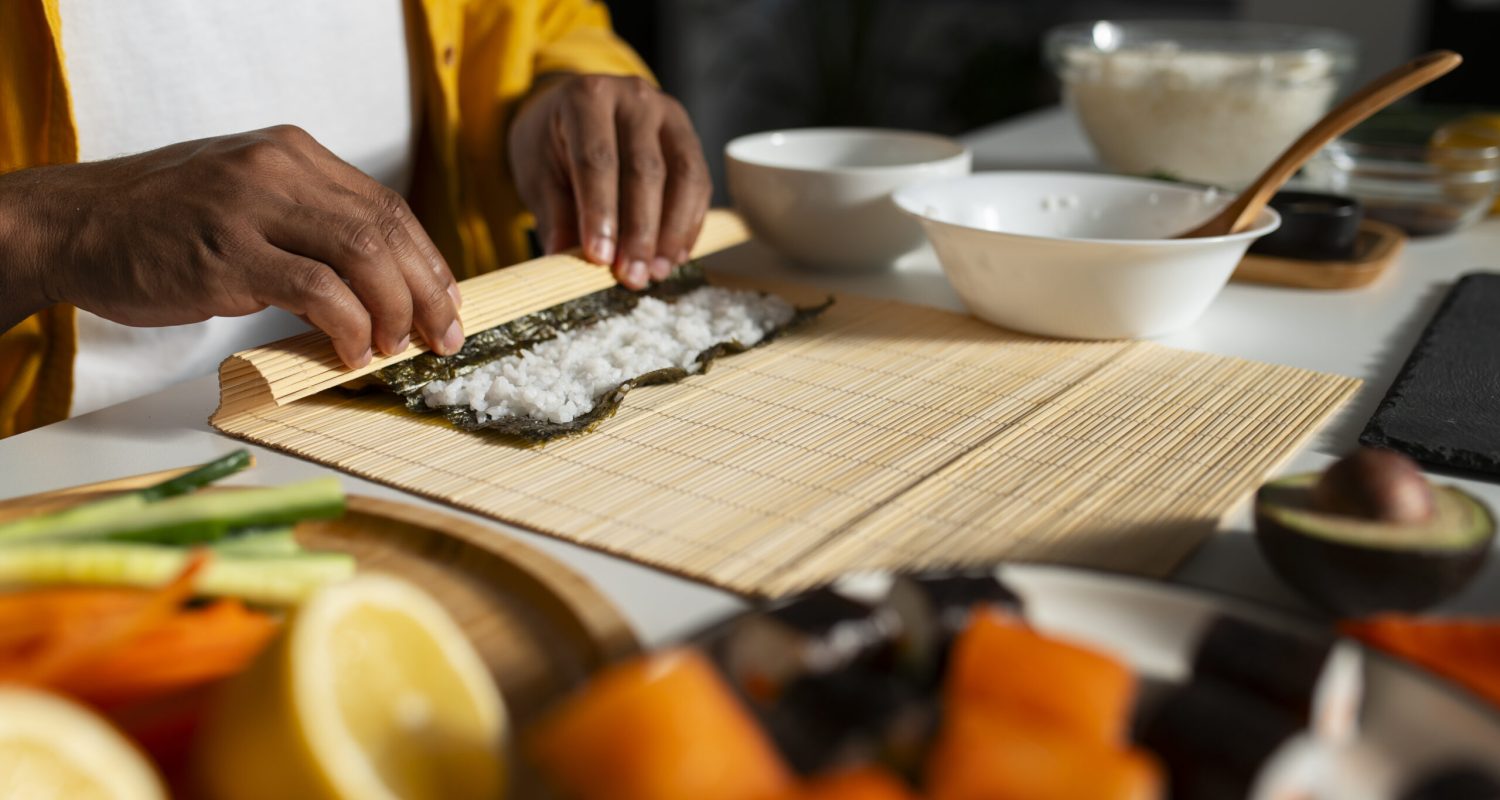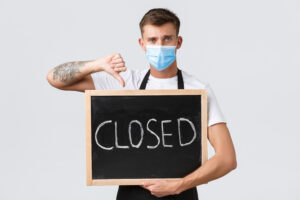Operating a sushi restaurant in Florida presents both unique challenges and rewarding opportunities. From sourcing the freshest seafood to maintaining the delicate art of sushi preparation, every detail matters when it comes to creating an exceptional dining experience. Beyond the culinary artistry, sushi restaurants often feature vibrant atmospheres, open kitchens, and interactive dining that attract both locals and tourists. However, this dynamic environment also comes with a higher level of responsibility and exposure to risks ranging from food safety and customer slip-and-fall accidents to equipment breakdowns and liquor liability if alcohol is served.
That’s why protecting your investment with the right insurance coverage is not just a formality but a business necessity. One of the most essential safeguards is general liability insurance for restaurants Florida, which provides critical protection against claims of bodily injury, property damage, and even advertising liability. Without it, a single lawsuit could jeopardize the financial stability and reputation of your establishment.
At Commercialize Insurance Services (CIS), we recognize the intricacies of operating a sushi restaurant and the importance of having comprehensive, customized insurance solutions in place. Our team works closely with restaurant owners to identify potential vulnerabilities, streamline coverage options, and build tailored policies that allow you to focus on delighting your customers while we help minimize your risks. With the right insurance strategy, your sushi restaurant can thrive in Florida’s competitive dining scene confidently and securely.
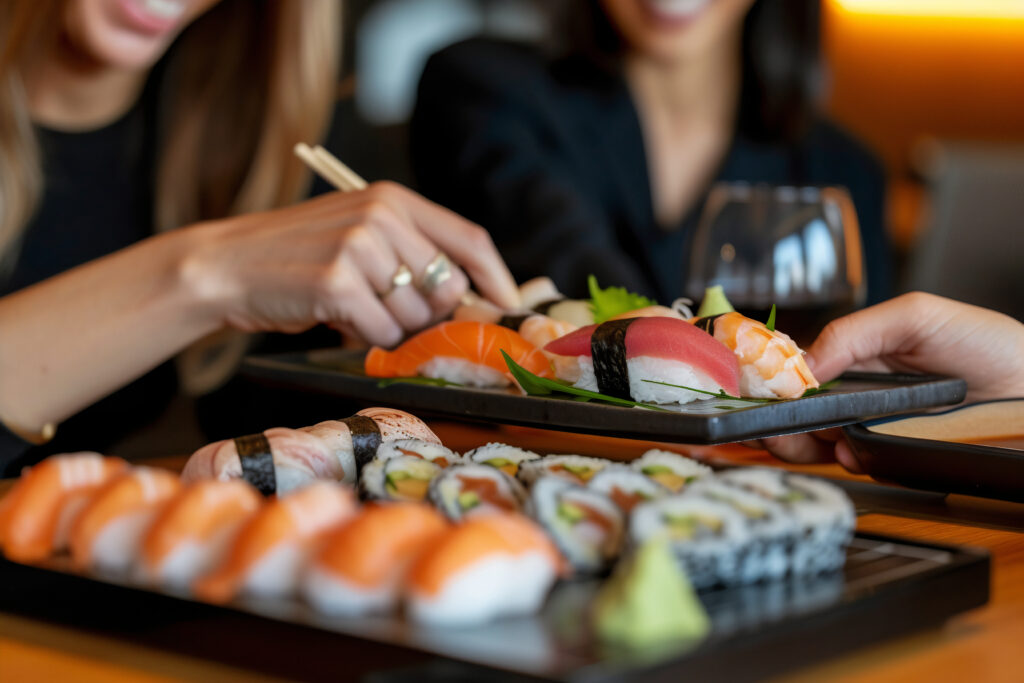
Understanding the Unique Risks of Sushi Restaurants
Sushi restaurants in Florida operate in a highly competitive and fast-paced dining market, where both culinary excellence and customer satisfaction are key to success. However, behind the artistry of sushi preparation lies a complex risk environment that can affect daily operations, financial stability, and long-term reputation. From food safety concerns to employee injuries and unexpected closures, sushi establishments face challenges that demand proactive risk management. One of the most effective ways to safeguard your business is by investing in general liability insurance for restaurants Florida, along with complementary coverages tailored to the food service industry.
Let’s explore the unique risks sushi restaurants encounter and how the right insurance solutions can make a difference.
Food Safety and Contamination
Food safety is one of the most pressing concerns for sushi restaurants due to the frequent use of raw fish and other highly perishable ingredients. Even when strict hygiene standards are followed, the risk of contamination or improper storage remains. A single case of foodborne illness can lead not only to customer lawsuits but also to reputational damage that may take years to repair.
This is where general liability insurance for restaurants Florida provides critical protection. It can help cover the costs associated with legal claims from customers alleging illness or injury caused by food served at your establishment. Coupled with proper food handling practices, insurance ensures that your restaurant is financially protected against the unexpected.
Equipment and Property Damage
Running a sushi restaurant often requires significant investment in specialized equipment such as sushi cases, rice cookers, and refrigeration units that must operate flawlessly to ensure freshness and safety. Unfortunately, equipment breakdowns, fires, or water damage can happen at any time, disrupting operations and creating unplanned expenses.
While property insurance can help cover repair or replacement costs, many restaurant owners overlook the broader financial consequences of downtime. A tailored Business Owners Policy (BOP), which often combines property coverage with general liability insurance for restaurants Florida, provides a more comprehensive safety net, protecting both physical assets and the business itself.
Employee Injuries in the Kitchen
The sushi kitchen is a demanding and often high-pressure environment. Staff regularly handle sharp knives, hot surfaces, and heavy equipment all of which increase the likelihood of workplace injuries. Cuts, burns, and slips are common risks that can lead to workers’ compensation claims.
While workers’ compensation insurance is legally required in Florida for most businesses, it’s equally important to recognize the role of liability insurance in these situations. For example, general liability insurance for restaurants Florida may come into play if a non-employee, such as a delivery worker, is injured on the premises, protecting your business from costly lawsuits.
Customer-Related Liability Incidents
In addition to food safety, customer incidents represent a significant risk for sushi restaurant owners. Common scenarios include slip-and-fall accidents, allergic reactions to undisclosed ingredients, or altercations involving intoxicated patrons when alcohol is served.
These situations can quickly escalate into legal disputes. With general liability insurance for restaurants Florida, you gain essential coverage for legal fees, settlements, and medical expenses related to third-party claims. This type of insurance acts as a financial shield, allowing you to focus on resolving the incident and maintaining your restaurant’s reputation.
Business Interruption Risks
Florida’s climate brings additional challenges, including hurricanes, tropical storms, and frequent power outages. Any of these events can result in temporary closures that disrupt cash flow. For sushi restaurants, even a short period without refrigeration can mean the loss of thousands of dollars’ worth of inventory.
Business Interruption Insurance, often available as part of a BOP, works hand in hand with general liability insurance for restaurants Florida to provide comprehensive protection. While general liability covers third-party claims, business interruption ensures your income and operating expenses are protected during forced closures, keeping your business resilient through difficult times.
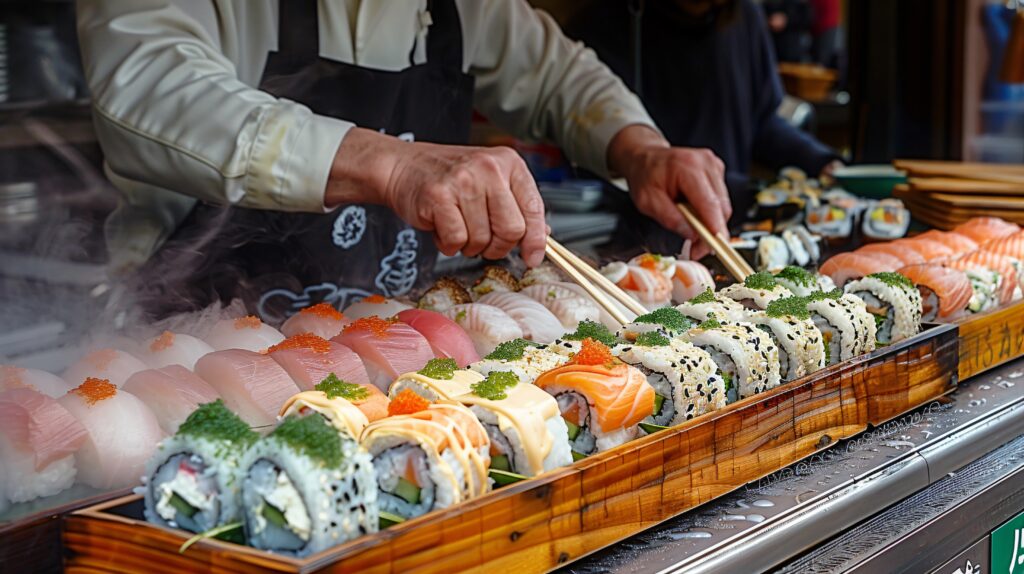
Essential Insurance Coverages for Sushi Restaurants
Running a sushi restaurant in Florida requires balancing artistry, customer service, and operational efficiency all while navigating a risk-filled environment. From raw seafood handling to specialized refrigeration units and high customer turnover, the challenges are unique and often magnified by Florida’s regulatory and environmental landscape.
The key to long-term success lies in proactively protecting your business with insurance policies tailored to these unique risks. Let’s break down the essential coverages every sushi restaurant should carry to ensure resilience, compliance, and financial protection.
General Liability Insurance
Perhaps the single most critical safeguard for any dining establishment is general liability insurance for restaurants Florida. This policy provides financial protection against third-party claims of bodily injury, property damage, or personal injury that occur within your restaurant.
- Example 1: A customer slips on spilled soy sauce near the sushi bar, suffers a broken wrist, and files a lawsuit. General liability covers medical expenses, legal fees, and potential settlement costs.
- Example 2: A diner claims foodborne illness after eating sashimi and sues the restaurant for damages. Liability coverage steps in to handle these claims, protecting the restaurant’s reputation and financial health.
- Example 3: During a private event, a guest alleges that your restaurant’s promotional material defamed them. Personal and advertising injury protections, included in general liability, may cover the claim.
Without this coverage, a single claim could bankrupt a small sushi restaurant. By securing general liability insurance for restaurants Florida, owners not only comply with industry best practices but also gain peace of mind knowing they are protected against the unexpected.
Workers’ Compensation Insurance
In Florida, restaurants with four or more employees are legally required to carry workers’ compensation insurance. But beyond compliance, it’s a lifeline for staff safety and business protection.
Sushi restaurants are high-pressure environments. Chefs handle razor-sharp sushi knives, hot grills, and heavy rice cookers, while servers navigate crowded dining areas balancing trays and drinks. Accidents are almost inevitable.
Workers’ compensation covers:
- Medical treatment for injuries like knife cuts, burns, or slips.
- Wage replacement while employees recover.
- Rehabilitation costs if long-term treatment is needed.
For example, if a sushi chef slices their hand while preparing sashimi, workers’ compensation ensures medical bills and lost wages are covered, preventing the employee from suing the business directly.
Commercial Property Insurance
Sushi restaurants rely on both ambiance and specialized equipment. Refrigeration systems, sushi display cases, and kitchen equipment must remain operational 24/7 to maintain food safety and quality.
But risks like fires, water damage, theft, or vandalism can devastate a business overnight. Commercial property insurance ensures you can repair or replace assets without draining your finances.
- Scenario 1: A Florida hurricane causes water damage to your restaurant’s interior and refrigeration systems. Property insurance covers repairs and replacement costs.
- Scenario 2: A fire in the kitchen damages equipment and halts operations. Your policy helps you rebuild and reopen faster.
Many sushi restaurants in Florida choose a Business Owners Policy (BOP), which bundles property insurance with general liability insurance for restaurants Florida for more cost-effective and comprehensive coverage.
Liquor Liability Insurance
Sushi restaurants often serve sake, Japanese whiskey, or cocktails to complement their dishes. While profitable, serving alcohol brings additional risks.
If a customer becomes intoxicated and injures themselves or others after leaving your establishment, your restaurant could be held legally responsible. Liquor liability insurance covers:
- Legal defense costs
- Settlements or judgments
- Medical expenses tied to alcohol-related incidents
For example, if a guest consumes too much sake, drives home, and causes an accident, your restaurant could face a lawsuit. With liquor liability insurance, these claims are financially manageable.
Business Interruption Insurance
One of the most overlooked but vital coverage for sushi restaurants is business interruption insurance. It compensates for lost income and fixed expenses if your restaurant must temporarily close due to a covered event like fire, hurricane damage, or prolonged power outages.
This is particularly crucial for sushi establishments, where downtime means spoiled fish, lost customers, and disrupted cash flow. Business interruption coverage ensures you can continue paying rent, payroll, and utilities until your restaurant reopens.
- Scenario: A tropical storm causes widespread power outages across Miami. Without refrigeration, your seafood supply spoils, and your restaurant cannot operate for several days. Business interruption insurance steps in to replace lost income and cover operating expenses during closure.
Food Contamination and Spoilage Insurance
Freshness is the cornerstone of sushi, but it also makes these restaurants uniquely vulnerable. Raw fish, seafood, and rice are highly perishable and must be stored under strict conditions.
Food contamination and spoilage insurance protects against losses caused by:
- Equipment breakdowns (e.g., freezer failure)
- Power outages (common in Florida summers)
- Food contamination incidents (e.g., bacteria growth in raw fish)
For instance, if a sushi restaurant in Orlando experiences a 12-hour power outage during a heatwave, thousands of dollars’ worth of tuna and salmon could spoil. This coverage ensures inventory can be replaced quickly so service resumes without devastating financial loss.
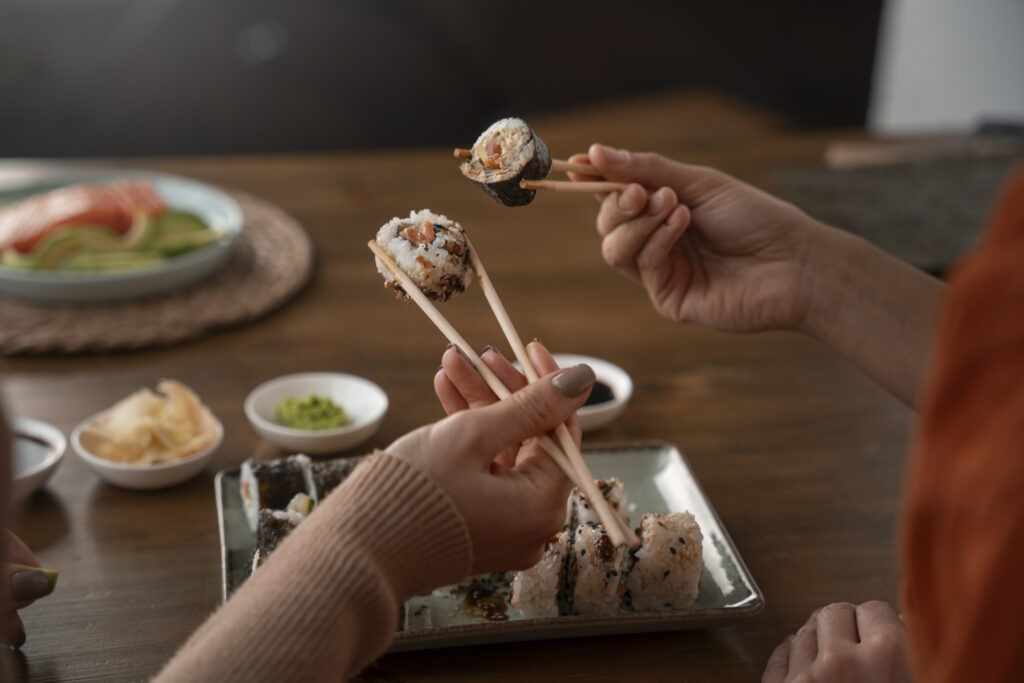
Navigating Florida’s Insurance Requirements
Operating a sushi restaurant in Florida isn’t just about serving high-quality cuisine it also involves meeting state and local legal requirements to remain compliant. Failing to carry the proper insurance can lead to fines, penalties, loss of permits, or even forced closure. Understanding these obligations ensures that your business operates within the law while maintaining essential protections against risk.
Below are the primary insurance requirements sushi restaurant owners must be aware of:
Workers’ Compensation Insurance
Under Florida law, any business with four or more employees is required to carry workers’ compensation insurance. This applies not only to full-time employees but also to part-time and seasonal staff, which is particularly relevant for sushi restaurants that may hire extra workers during tourist seasons or for special events.
- Example: A sushi chef working part-time suffers a deep knife cut during food prep. Workers’ compensation covers medical treatment and lost wages while the employee recovers.
Failing to carry this coverage can result in heavy fines and personal liability for workplace injuries, placing both your staff and your restaurant at serious risk.
General Liability Insurance
While general liability insurance for restaurants Florida is not mandated at the state level, many Florida counties and municipalities require businesses to show proof of coverage before granting business licenses or permits.
For sushi restaurants, this requirement often comes into play when applying for:
- Local health permits
- Event catering licenses
- Occupancy permits for restaurant spaces
Even when not explicitly required, this coverage is considered a best practice in the food service industry. A single slip-and-fall, foodborne illness, or property damage claim could cost tens of thousands of dollars. By carrying general liability insurance, sushi restaurant owners not only stay compliant with local authorities but also protect their financial stability.
Liquor Liability Insurance
If your sushi restaurant serves sake, beer, wine, or cocktails, the Florida Division of Alcoholic Beverages and Tobacco may require proof of liquor liability insurance as part of the alcohol licensing process.
This coverage protects your business from claims related to alcohol service, including situations where intoxicated patrons cause harm to themselves or others after leaving your restaurant.
- Example: A customer consumes too much sake at your restaurant, drives home, and causes an accident. Liquor liability insurance steps in to cover legal fees and damages, shielding your restaurant from potentially devastating financial exposure.
Even in cases where it isn’t explicitly required by law, liquor liability coverage is considered essential for any establishment serving alcohol in Florida.
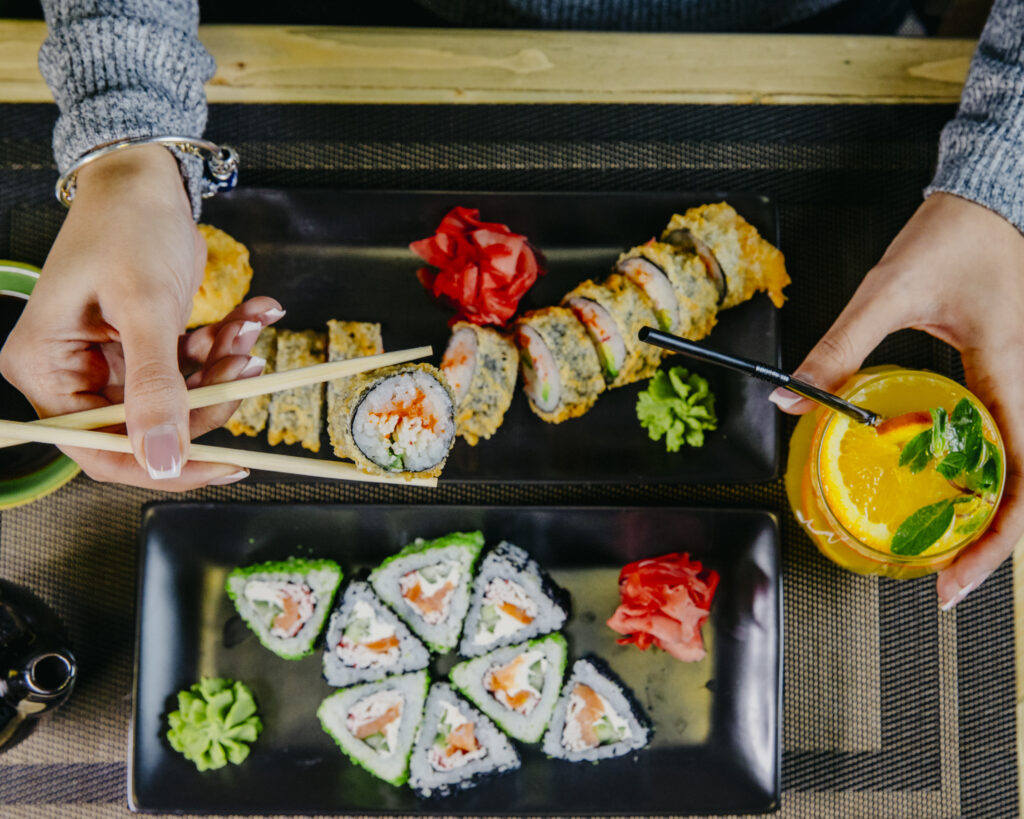
Why Compliance Matters
Meeting Florida’s insurance requirements isn’t just about avoiding fines or securing licenses, it’s about ensuring your sushi restaurant operates with the right foundation of protection. By maintaining workers’ compensation, liquor liability, and especially general liability insurance for restaurants Florida, you demonstrate responsibility as a business owner and provide long-term stability for your staff, customers, and brand.
Best Practices for Managing Insurance Risks
While obtaining the right insurance coverage is the cornerstone of protecting your sushi restaurant, proactive risk management goes a step further. According to the U.S. Small Business Administration (SBA), small businesses that actively prepare for risks and disasters are more likely to recover quickly and reduce financial losses.. By combining comprehensive policies such as general liability insurance for restaurants Florida, workers’ compensation, and business interruption insurance with best practices, you can reduce claims, improve safety, and lower long-term costs.
Here are five key strategies to enhance your restaurant’s resilience:
Regular Staff Training
Sushi preparation requires precision, cleanliness, and strict adherence to food safety standards. National Restaurant Association (NRA) emphasizes that regular training in hygiene and food handling not only ensures compliance but also reduces liability exposures for restaurant owners. Additionally, staff should be educated on customer safety practices, such as monitoring alcohol consumption when liquor is served.
- Example: Conduct monthly refresher courses on proper storage temperatures for raw fish and shellfish. This reduces the risk of contamination and protects against claims of food poisoning.
- Insurance Impact: By lowering the likelihood of food safety incidents, you minimize the chances of liability claims that would trigger your general liability insurance for restaurants Florida.
Implement Safety Measures
Physical safety within the restaurant is just as important as food safety. Installing non-slip mats in high-traffic areas, maintaining clear walkways, and ensuring proper ventilation in the kitchen are essential steps. Regular inspections of sushi cases, refrigeration units, and fire suppression systems also reduce risks.
- Example: A sushi restaurant in Tampa reduced workplace injuries by adding slip-resistant flooring behind the sushi bar where spills often occur.
- Insurance Impact: Fewer accidents not only protect staff and patrons but can also reduce premiums on both workers’ compensation and general liability policies.
Maintain Accurate Records
Documentation is your strongest defense during an insurance claim or audit. Keeping detailed records of staff training, safety inspections, and equipment maintenance demonstrates responsibility and compliance.
- Example: If a customer claims illness due to sushi consumption, having records of refrigeration checks and ingredient sourcing can be invaluable evidence to support your defense.
- Insurance Impact: Strong documentation can expedite claim processing under your general liability insurance for restaurants Florida, preventing disputes and unnecessary financial strain.
Review Insurance Policies Annually
Your sushi restaurant is not static, menus evolve, staff levels fluctuate, and operations expand. Insurance policies should evolve accordingly. Annual reviews ensure you maintain adequate coverage without overpaying for unnecessary add-ons.
- Example: A sushi restaurant that added a sake bar needed to update its policy to include liquor liability coverage. Without the update, they risked being uninsured for alcohol-related incidents.
- Insurance Impact: Annual policy reviews prevent dangerous coverage gaps and ensure compliance with Florida regulations. Insurance Information Institute (III) advises that reviewing policies regularly also helps restaurant owners balance costs with protection, avoiding both underinsurance and unnecessary premiums.
Work with an Experienced Insurance Agent
The restaurant industry, and sushi restaurants in particular, face unique challenges. Partnering with an independent insurance agent who specializes in hospitality coverage can help you secure tailored protection.
At Commercialize Insurance Services (CIS), we work closely with sushi restaurant owners to identify risks, recommend cost-effective solutions, and ensure compliance with Florida’s licensing requirements. From helping you secure general liability insurance for restaurants Florida to customizing policies that include spoilage and business interruption, our expertise helps safeguard your business against unexpected losses.
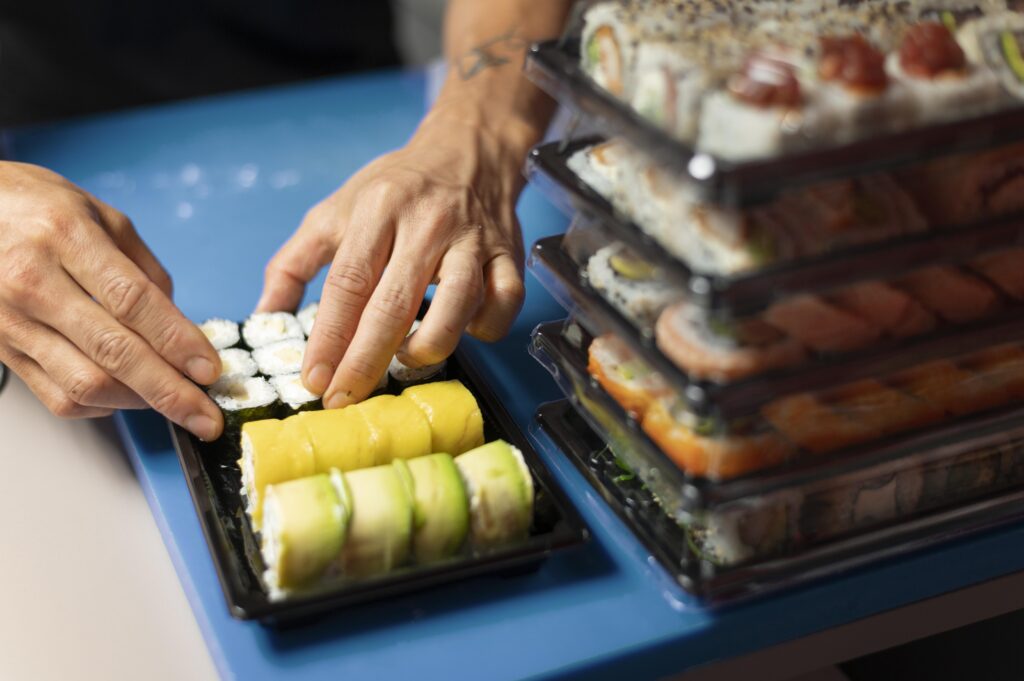
Protecting Your Sushi Restaurant
At Commercialize Insurance Services (CIS), we understand that sushi restaurants are not just businesses, they are cultural experiences built on precision, freshness, and customer trust. Operating in Florida’s competitive dining market means that owners must balance artistry with compliance, safety, and risk management. That’s where the right insurance solutions come in.
Our team specializes in creating comprehensive insurance plans designed specifically for sushi restaurants. From the daily risks of food safety to the long-term threats of hurricanes or lawsuits, we provide coverage strategies that allow you to focus on what matters most: serving exceptional sushi and building a loyal customer base.
Risk Assessment: Identifying Your Restaurant’s Vulnerabilities
Every sushi restaurant is unique, and so are its risks. Our first step is a thorough assessment of your operations, location, and business model. For instance, a restaurant in Miami Beach may face higher hurricane-related risks, while one in Orlando may need greater liquor liability coverage due to a vibrant nightlife scene.
By evaluating your exposure to common risks such as food contamination, equipment breakdown, customer accidents, or alcohol service we ensure that you’re not left vulnerable.
Customized Insurance Plans: Tailored to Your Needs
No two sushi restaurants are alike, which is why cookie-cutter insurance plans often leave dangerous gaps. At Commercialize Insurance Services (CIS), we build customized insurance packages that align with your restaurant’s size, staff count, menu offerings, and budget.
Typical policies may include:
- General liability insurance for restaurants Florida to protect against customer claims of injury or property damage.
- Workers’ compensation to cover employee injuries such as knife cuts or burns.
- Commercial property insurance to protect your equipment, sushi cases, and dining space from fire, theft, or storm damage.
- Business interruption insurance to cover lost income during forced closures.
- Food contamination and spoilage insurance to safeguard your perishable inventory.
This tailored approach ensures you have comprehensive protection without paying for unnecessary extras.
Claims Assistance: Support When You Need It Most
Filing an insurance claim can be stressful, especially when it involves foodborne illness allegations, equipment failure, or alcohol-related incidents. At Commercialize Insurance Services (CIS), we don’t just provide coverage we stand by your side throughout the claims process.
Our dedicated claims support team ensures:
- Fast response times to minimize business disruption.
- Clear communication so you understand every step.
- Fair settlements that reflect the true impact of your loss.
Regulatory Guidance: Staying Compliant in Florida
Florida’s insurance and restaurant regulations can be complex, particularly when it comes to workers’ compensation, liquor liability, and health permits. Our team provides regulatory guidance, helping you understand what is legally required versus what is strongly recommended.
For example, while general liability insurance for restaurants Florida may not always be mandated at the state level, many counties require it before granting permits. By staying informed and compliant, you avoid costly fines, legal troubles, and potential interruptions to your business.
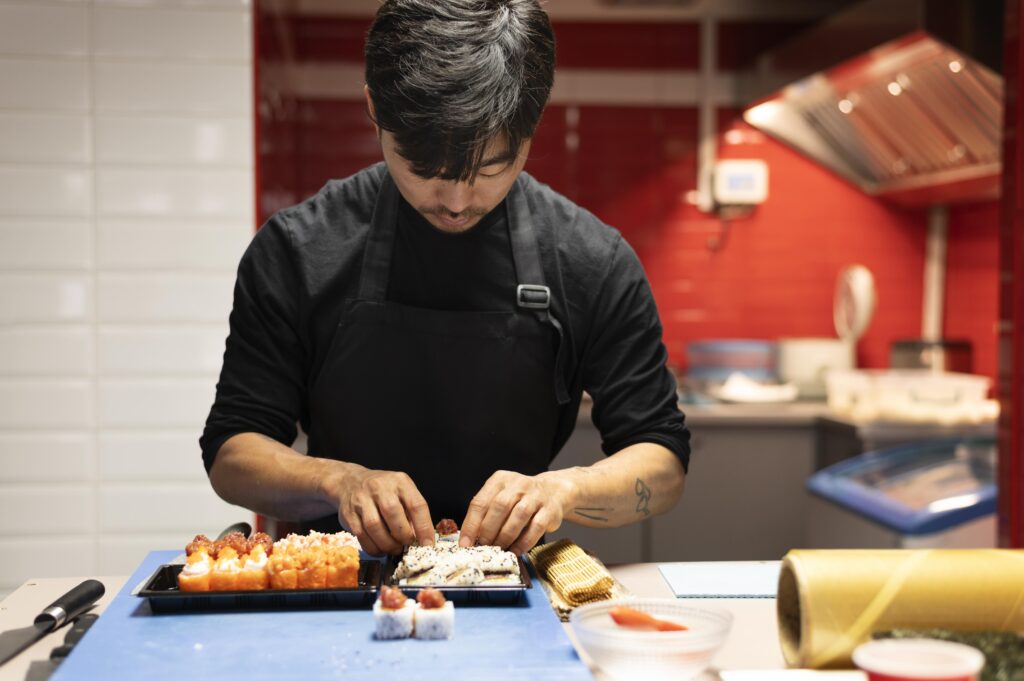
Strengthening Your Business with the Right Coverage
Protecting your sushi restaurant with comprehensive insurance coverage is not just a legal obligation, it’s a smart business decision. At Commercialize Insurance Services (CIS), we’re committed to helping you safeguard your investment, your employees, and your customers.
Contact us today to schedule a consultation and learn how we can assist you in navigating the complexities of restaurant insurance in Florida. Together, we can ensure that your sushi restaurant continues to serve delicious meals in a safe and secure environment.
Contact Commercialize Insurance Services (CIS) today and brew with confidence tomorrow.
- Phone: (321) 830 – 0006
- Email: info@usa-cis.com
- Web: https://usa-cis.com
- Facebook: Commercialize Insurance Services
- Instagram: @insurance.cis

